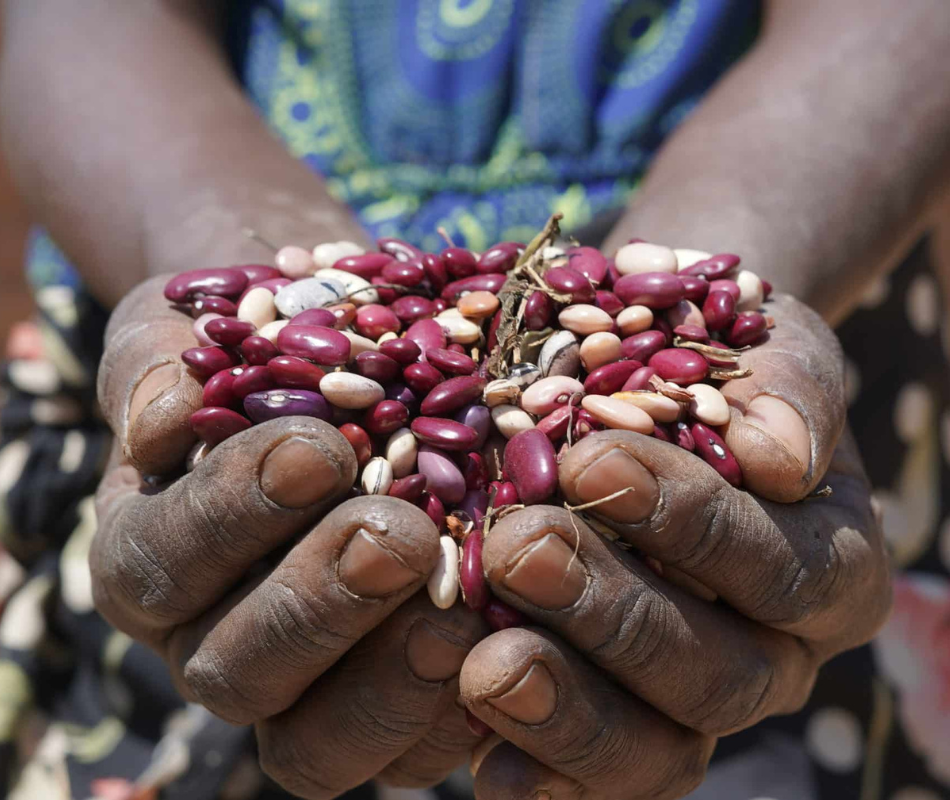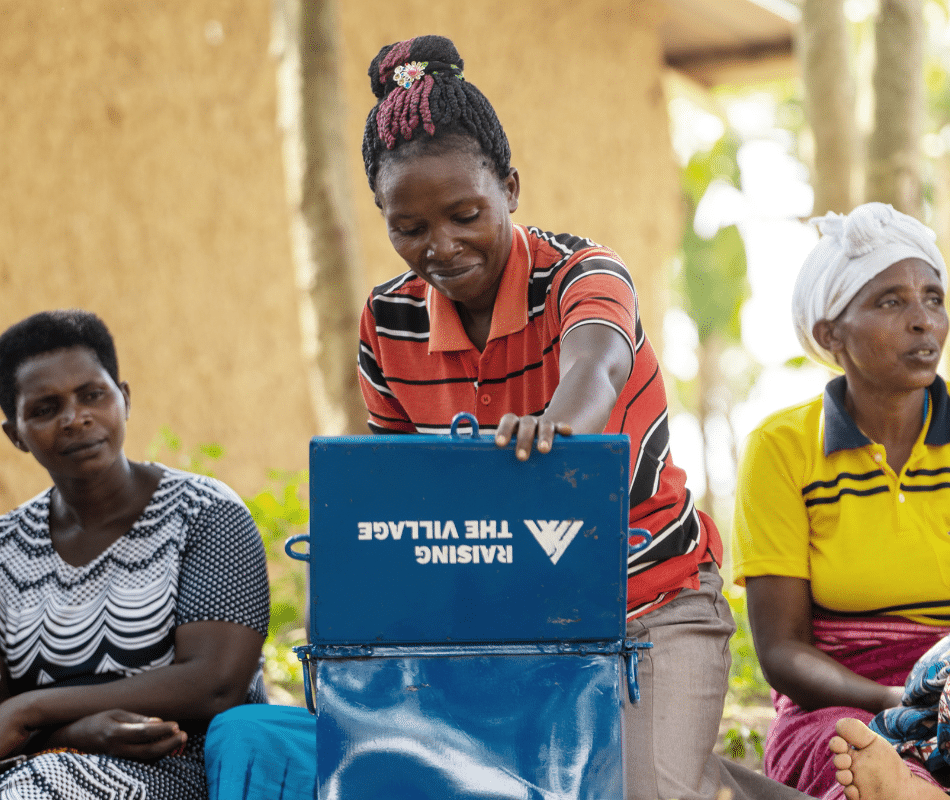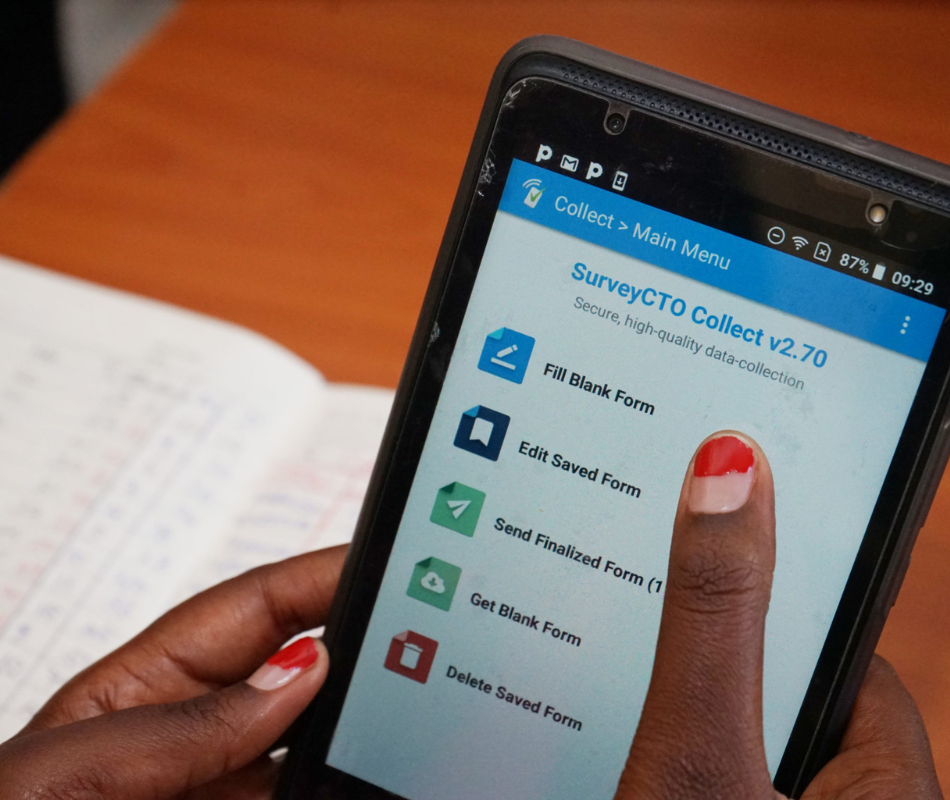Healthy Households
Improving wellbeing, financial literacy and equity
Ultra-poverty in hard-to-reach areas is characterized by a lack of access to basic necessities, including sanitation, clean water, and health services. These challenges act as barriers for families to invest time and already limited resources into improving incomes, creating a generational cycle that is difficult to break.
Raising The Village addresses these barriers by providing training on and ensuring the adoption of best practices on hygiene and sanitation (WASH training), providing access to clean water based on community needs, and creating preventative health awareness through Health Outreaches (HOR). As a result, our Partner Communities report fewer instances of water and non-water-borne illnesses compared to Peers, with the households reporting no illnesses earning an average of $0.62/day more than those with a single illness.
Water, Sanitation and Hygiene (WASH) Training
Awareness on prevention, sanitation and hygiene practices such as tippy taps for handwashing and constructing functional and clean latrines and bathrooms with proper drainage help families reduce the instances of diseases and illnesses. Through ongoing follow-up visits, our team ensures high adoption levels of these practices. Households with high adoption rates report fewer illnesses compared to households with low adoption.
Access to Clean Water
We work with partner communities to construct, rehabilitate, and protect clean water sources in water-stressed communities based on the community’s need analysis. With access to clean water within a km of their homestead, partner households are able to not only save time, particularly women and children but also reduce the incidence of water-borne illnesses significantly. With a reduction in collection time, and illnesses, Partner Household’s income and net wealth increase.
Health Awareness
Our teams work with health extension workers to create preventative health awareness in last-mile communities through Health Outreaches. These sessions include education on nutrition, family planning, maternal health, stress management, and prevention from and care of common ailments. Our health outreach sessions also include creating awareness of preventative measures in the fight against communicable diseases and the best standard operating procedures.
Food Security
Partner communities receive training on nutrition and are provided with a large variety of vegetable seedlings for communities to transplant in their home gardens for a sustainable, reliable, and nutritious food supply for each family and maximize a 5×5 metre garden or grow in existing household items such as cans. As a result, our Partner Communities are able to spend less on buying vegetables, improve their health and nutrition, and have an additional source of income by selling the surplus.
Gender Equality
Women represent the majority of ultra-poor subsistence farmers in Uganda. To eradicate ultra-poverty in Uganda, we have to create space for and design plans with women at the forefront. Villages with women in positions of leadership become our most successful partners and consistently show the greatest improvements in household income.
Creating a safe space for women to dialogue and collectively identify their concerns, priorities, and goals is the foundation of every successful partnership. Facilitating the opportunity for women’s voices to be heard within the community opens minds and changes the traditional dynamic.
Since women often serve as the primary caregiver in their homes, we create time and space by addressing household constraints and top-of-mind concerns such as improved access to water, agriculture, nutrition, and door-step health visits. Addressing these core issues creates availability for women to participate in village training and leadership opportunities and offers many women a moment to finally catch their breath.
We design our programs to focus on providing seeds for crops traditionally identified as “women’s crops”, addressing gaps such as the availability of farming tools and women’s initiatives that put power primarily into the hands of women. The results of these programs consistently benefit the entire household. The intentional design encourages women to step into decision-making and leadership roles for the very first time.
Additionally, through training and ongoing sensitization, we work with partner households to increase joint decision-making and engagement between men and women on family planning, education, household spending, and other important issues. To read more about how we partner with women in rural communities, click here.
Healthy Households Training Program
To ensure skill development as well as an increased willingness of community members to elect gender equitable groups, a series of financial literacy, financial inclusion, gender equality, and behavior and mindset change training are delivered to provide them with a better understanding regarding budgeting, time management, household income, and gender roles, alongside income diversification and investment, and promoting a savings culture.





